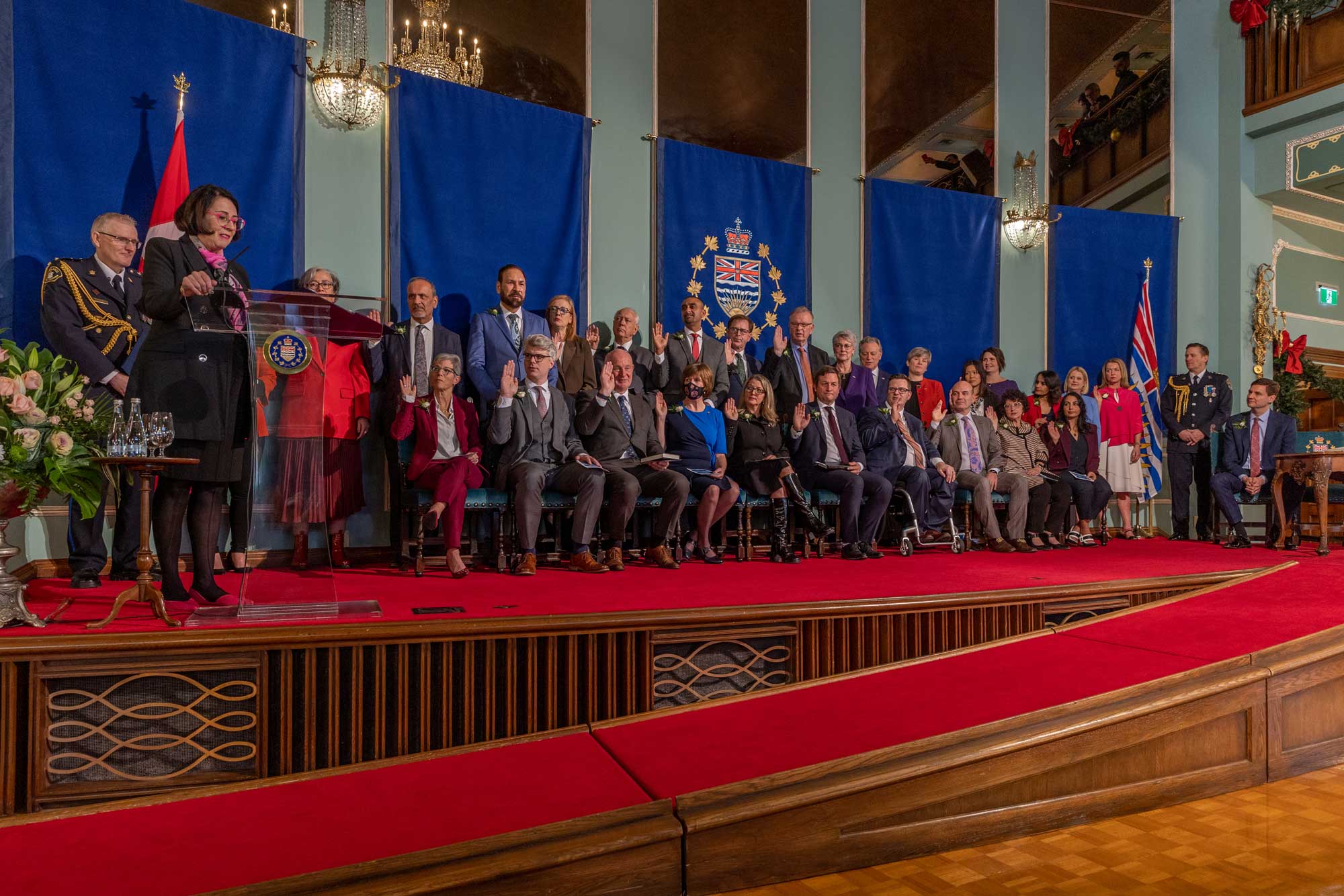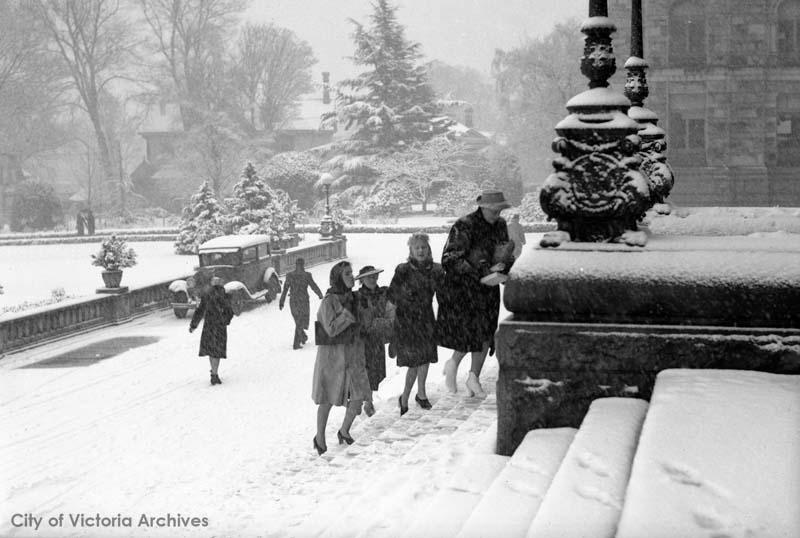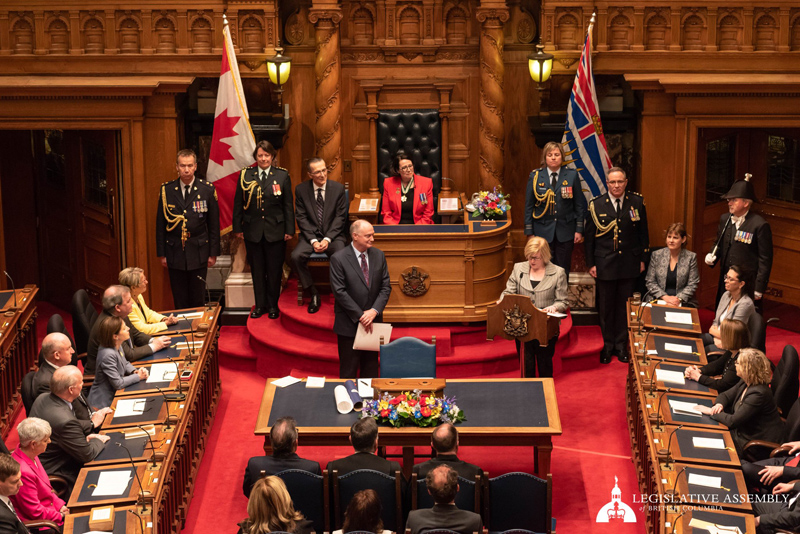The four main responsibilities of the executive branch of government are:
- Developing policies to deal with the issues facing the province
- Preparing legislation to be presented to the Legislative Assembly
- Submitting government spending requirements to the Legislative Assembly for approval
- Making sure the policies and laws of the province are implemented
In British Columbia, the Lieutenant Governor, the Premier and their Cabinet, and the public service each play a role in the executive branch of government. While these components collectively represent the executive branch, each may also be seen as forming the formal, political, and permanent elements of the government, respectively.
The formal element of the executive branch is His Majesty King Charles III, who is the legal head of state of Canada. The Lieutenant Governor represents the King in British Columbia. Executive government in B.C. is vested in the Lieutenant Governor acting by and with the advice of the Executive Council.
The political executive is composed of the Premier and Cabinet, who together run the government. The Premier receives the authority to govern from the Crown - upon invitation from the Lieutenant Governor to form a government - and recommends to the Lieutenant Governor which MLAs be appointed as Cabinet ministers. Cabinet ministers are often tasked with running government ministries. The appointment of MLAs to Cabinet may be based on ability, expertise, and political considerations such as geography, gender, or ethnicity. When the Premier and Cabinet ministers act in a formal legal capacity, they are known as the Executive Council, with the Premier being the President of the Executive Council.
The public service - acting under the authority of the Crown and a Cabinet minister - make up the permanent element of the executive branch. These are the non-partisan and impartial employees who are responsible for carrying out the day to day activities of government and for delivering services to the public.
Did You Know?
If the Lieutenant Governor is unavailable, an Administrator takes their place. Usually this role is taken on by the Chief Justice of the British Columbia Court of Appeal.




